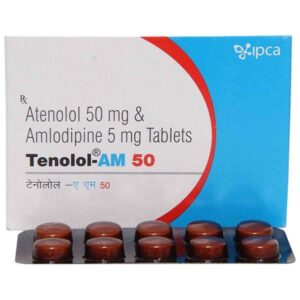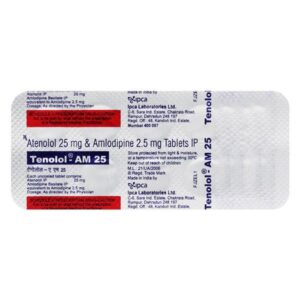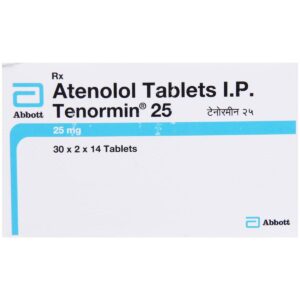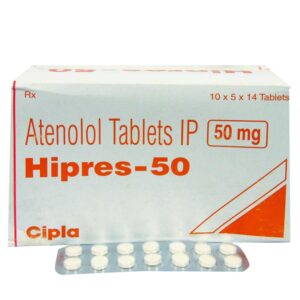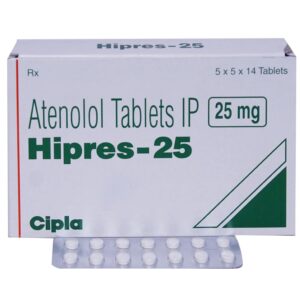ATENOLOL
ATENOLOL: Atenolol is a drug classified as a beta-blocker. It is primarily prescribed to treat conditions such as high blood pressure (hypertension), angina (chest pain), and certain heart rhythm disorders.
Its mechanism of action involves blocking the effects of adrenaline (epinephrine) and stress hormones on the heart. By doing so, it reduces the heart rate and force of contraction, thereby decreasing the workload on the heart and lowering blood pressure.
The initial recommended dose of Atenolol for hypertension is usually 50 mg taken orally once a day. This dose can be adjusted based on individual response, but typically does not exceed 100 mg per day. For angina or arrhythmias, the dose may vary and should be determined by a healthcare professional.
Some common side effects of Atenolol include fatigue, dizziness, lightheadedness, cold hands and feet, and slow heartbeat. It may also cause sleep disturbances, depression, and impotence in some individuals. Rarely, severe side effects such as allergic reactions, breathing difficulties, or worsening heart conditions may occur. It’s important to consult a doctor if any unusual or severe side effects are experienced.
Atenolol should not be abruptly discontinued, as it can lead to a rebound effect and worsen heart conditions. If you have any concerns or questions about the use of Atenolol, it is recommended to consult a healthcare professional for personalized advice.

